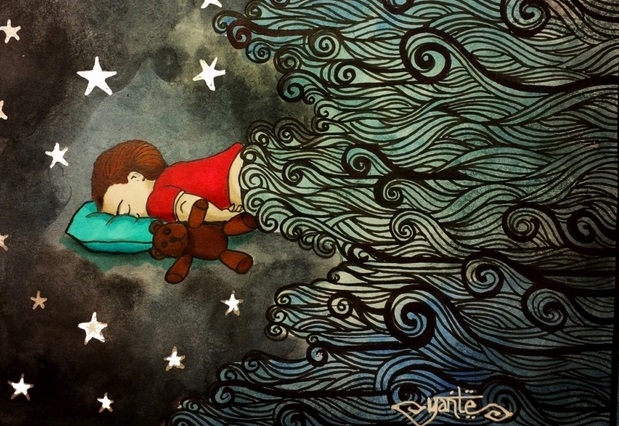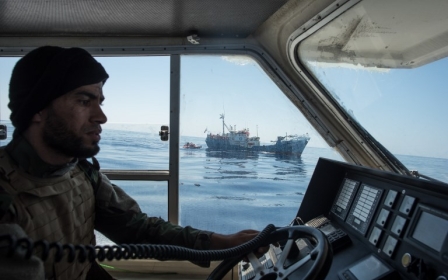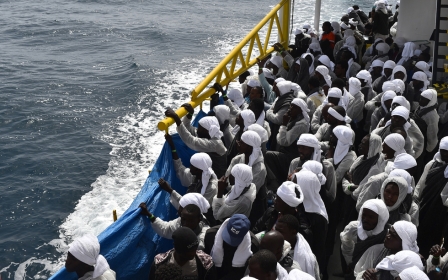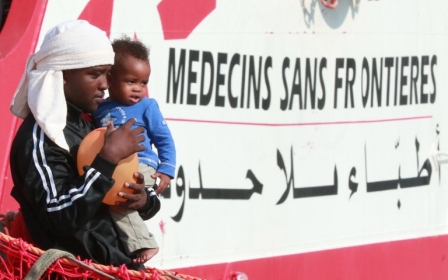At least 8,500 refugees drowned on way to Europe since death of Alan Kurdi

At least 8,500 refugees and migrants have drowned while crossing the Mediterranean since the death of three-year-old Syrian boy Alan Kurdi two years ago, according to the latest figures from the UNHCR.
Ahead of Saturday's second anniversary of Kurdi's death, the UN relief agency said that although the number of arrivals in Europe has decreased significantly since he washed up on a Turkish beach, many refugees and migrants continue to attempt the dangerous journey across the Mediterranean to Italy and elsewhere.
Since 2 September 2015, more than 8,500 people have died or gone missing trying to cross the Mediterranean alone, while many hundreds, possible thousands, are thought to have died in the deserts of Niger and Libya, according to the International Organisation for Migration (IOM), a UN agency.
The new mortality figures, released late on Thursday, show that 4,337 people are believed to have died since September 2016 while attempting to reach Europe. Most departed from Libya bound for Turkey or from Turkey bound for Greece. Recent months have also seen more attempts to reach Europe from Morocco bound for Spain. At least 4,185 died in the previous 12 months.
The figures follow an earlier UNHCR report released last week that showed a decline in the numbers of refugees reaching Europe in the first half of 2017, mainly due to a 94 per cent decline in people using the sea route from Turkey to Greece.
Meanwhile, crossings from North Africa to Italy have remained at around the same level as last year, the UN body said.
Bribery on the border
Last week Middle East Eye revealed that Italy had been accused of bribing Libyan militias to stop refugees and migrants from setting off to reach Europe, amid reports that arrivals in Italy had dropped dramatically in recent weeks.
Despite an overall fall in arrivals, the likelihood of dying among people seeking to reach Europe is still alarmingly high, the UNHCR warned. It also warned that as most refugees travel clandestinely, such information is hard to confirm and these estimates and the real figure is likely to be higher.
Most refugees face dangerous desert crossings before they arrive in Libya where they risk sexual violence, torture and abduction for ransom. The latest figures also show that most children trying to reach Europe travel on their own. This was the case for 92 percent of the 13,700 children who arrived to Italy by sea in the first seven months of 2017.
The release of the figures coincides with an appeal from the UNHCR to the international community to take more robust action to prevent deaths of refugees and migrants at sea.
“Taking measures to reduce the number of refugees and migrants arriving in Europe, without at the same time stepping up peace-making, development, and safe pathways is morally unacceptable,” said High Commissioner for Refugees Filippo Grandi. “We can’t afford to ignore abuses clearly taking place simply because they happen out of our sight.”
However, the UN body said it was encouraged by the pledges made at Monday’s Paris meeting on migration and asylum. Europe’s major states agreed a plan to tackle human trafficking and support the African nations struggling to contain the flow of people across the desert and Mediterranean sea.
The 28-nation European Union has long struggled to come up with a coherent solution to the influx of migrants and refugees fleeing conflict, grinding poverty and political upheaval in the Middle East and Africa, and the crisis is testing cooperation between member states. Paris and Rome have repeatedly been at odds over accusations that France and other EU states are not sharing the migrant burden.
Will Europe act as one?
After hosting the leaders of Germany, Italy, Spain, Chad, Niger and Libya, French President Emmanuel Macron said it was time for greater coordination.
“We must all act together - from the source countries to Europe and passing by the transit countries, especially Libya - to be efficient,” he told reporters. “It’s a challenge as much for the EU as for the African Union.”
The meeting was sparse on concrete details, but the leaders did agree on the principle of setting up a mechanism to identify legitimate migrants who are fleeing war and persecution, and to use the United Nations to register them in Niger and Chad so as to prevent them being exploited by traffickers.
The informal meeting did not outline any new specific financing and the leaders repeated that stabilising chaotic Libya, where thousands of migrants end up before embarking on a perilous Mediterranean sea journey to Europe, would be key to any long-term solution.
New MEE newsletter: Jerusalem Dispatch
Sign up to get the latest insights and analysis on Israel-Palestine, alongside Turkey Unpacked and other MEE newsletters
Middle East Eye delivers independent and unrivalled coverage and analysis of the Middle East, North Africa and beyond. To learn more about republishing this content and the associated fees, please fill out this form. More about MEE can be found here.




